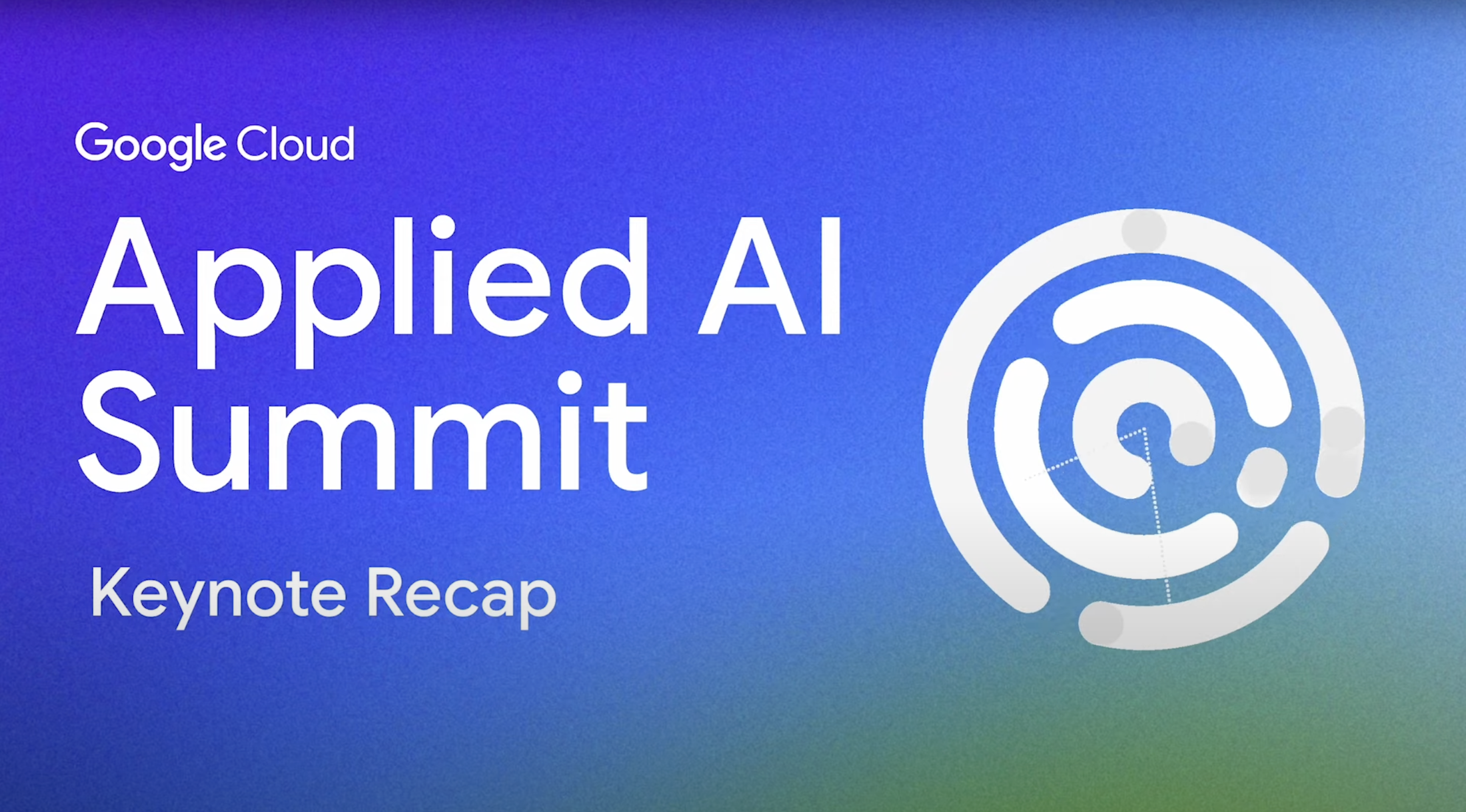The Prompt: Why gen AI is global — and local

Caroline Yap
Managing Director, Global AI Business, Google Cloud
Philip Moyer
Global VP, AI & Business Solutions at Google Cloud
Business leaders are buzzing about generative AI. To help you keep up with this fast-moving, transformative topic, our biweekly “The Prompt” column brings you observations from the field, where our leaders are working closely with customers and partners to define the future of AI. In this edition, Philip and Caroline explore the growing importance of local consideration for the successful global adoption of gen AI.
Around the world, in every industry and geography, companies are deeply engaging with generative AI. Over the past year, we’ve met with almost a thousand organizations in every region — including a recent “world tour” across Europe and Asia — and spent hundreds of hours speaking with both customers and partners.
Amazingly, all of them we met with, whether they’re a private organization or government agency, regulated or non-regulated, structured or unstructured, startup or century-old, were experimenting in some way, shape, or form with gen AI. Compared to past technologies, the speed and scope of gen-AI adoption truly feels different. In fact, it’s hard to find an organization that’s not onboard in some way.
Such far-reaching interest helps explain something equally unique about gen AI: In all our meetings with the diverse set of organizations we serve, it became readily apparent how this global phenomenon is also a remarkably local one.
Due to both the rapid pace of adoption and the novelties of gen AI — convincingly authoritative responses and realistic outputs made possible through a natural language interface — the enthusiasm for the technology is matched by a rare level of caution across the board. Executives, workers, regulators, and the public all have particular concerns about gen AI.
Though this tension between adoption and caution is compelling on its own, equally important is how it’s playing out across the globe. Different markets are distinctly focused on particular issues. South Korean organizations, for example, are concentrating on preventing data leakage, while French and Dutch leaders are more intent on detecting and identifying content that’s AI-generated (more on these and other examples below). Some of these priorities relate to business values, some to culture, and still others are geopolitical — the implications of which we’ll explore in greater detail below.
Global vision needs local context
It’s now clear that gen AI adoption is universal. For instance, generative AI companies raised close to $27 billion in 2023, according to Pitchbook — a staggering number for a technology that was commercialized only a year ago. By comparison, previous breakthrough technologies, such as the internet or the mobile phone, took years to gain widespread traction. Even recent disruptors like blockchain have yet to reach the same levels of mainstream adoption we’re already seeing with generative models and capabilities.
Still, gen AI’s rising star on the world stage has likewise raised questions and concerns much closer to home.
Gen AI’s unique ability to reason and produce content has placed a heightened focus on emerging risks, such as fraud, political interference, and the potential consequences for news and media. Despite AI’s universal scope, a common theme we’ve heard when speaking with customers has been around the need for governance at the local level tailored to the culture, needs, and challenges of specific governments, countries, and geographies. Even as both countries and companies seek to participate in a rapidly evolving global ecosystem, there is a deep desire from both sides to maintain local management and control over gen AI.

In part, gen AI becoming local is driven by commercial benefits. Beyond data residency, there’s a clear interest from organizations to ensure intellectual property and value creation remains in-country. They want data sovereignty, localized language support, and local infrastructure to support developing local models.
At the same time, there is also a strong sense that gen AI strategies will be informed and shaped by factors and influences that may not be present from a global perspective.
Different key strokes for different folks
During our meetings with customers, we observed a marked difference in local approaches to gen AI.
In South Korea, where tech-literacy rates tend to be high, we heard from executives at major organizations that they were less focused on copyright protection but had high concerns about data sovereignty and preventing data leakage due to the nation’s proximity to a number of adversarial countries. While in Japan, many of our discussions centered around deepfakes being used to spread misinformation and the content gen AI can produce.
By comparison, while we were visiting leaders in Europe, they tended to be more concerned about bias protection, copyright violations, and the role of provenance in content creation.
One of the biggest topics we discussed with organizations in France and the Netherlands, for instance, was how to recognize whether content was generated by a gen AI model or created by a human. With the coming EU AI Act — the first horizontal AI regulation that sets comprehensive rules for the safe, transparent, non-discriminatory, and sustainable use of large AI models — there’s more pressure than ever for organizations and governments in this area of the world to be prepared.
In the Middle East, we’ve heard more interest in setting up infrastructure to build with and use gen AI, as well as how to attract talent. We’ve had a lot of conversations with customers about the steps and requirements of building AI innovation hubs and the best practices for prioritizing their gen-AI ambitions. As regional leaders look to build economies spanning beyond natural resources, they see AI as a way to scale both tech businesses and advances in other industries, thanks to the flexibility and speed engendered by gen AI.
In a similar vein, leaders in Africa and parts of Latin America are excited to use gen AI to solve practical problems, like making fertilizers more efficient or better climate modeling. They are also excited to build more resilient supply chains to enhance access to global markets and the opportunities that come with them.
Already, we are seeing a global approach being informed by local insights and context. There is a huge effort to increase the coordination and collaboration between different countries to create a combined effort to ensure safe and responsible use of AI technologies.
The OECD launched an AI inspection tool to help a variety of domains assess and investigate potential ethical problems in AI-generated content. The Future Investment Initiative has established an AI coalition with the aim of bringing together developed and emerging markets to discuss how to better align around AI.
Local drives global maturity of responsible AI
The goals around gen AI are lofty, extending past technology adoption into driving business and cultural change. Successful use cases will likely hinge on how well companies and governments can understand the benefits these new technologies bring to the societies adopting them while fulfilling regulatory requirements to maximize potential and minimize risk.
People as consumers of technologies are also changing, both at work and in their personal lives. Organizations that fail to enable people to build or experiment with gen AI technologies in a responsible, secure way will miss the opportunity to tap into critical local cultural input that can drive new innovations and help solve long-standing problems.
More importantly, as many different countries and geographies attempt to address their primary local challenges, we believe it will drive responsible and safe AI practices everywhere.
Every geography, country, and city have a slightly different set of requirements that they are highly focused on, whether fraud, provenance, data sovereignty, bias, corporate and government regulations. As each of them discovers solutions and formulates frameworks individually, it will serve to cover global gaps a lot faster, allowing the gen AI space to mature at a rate that would take other technologies decades.
Ultimately, local gen AI, tailored to specific cultural, social, and regulatory contexts, will be a necessary element to achieving success with AI globally. At Google, we’ve been committed to helping organizations navigate the intricacies of adopting and developing gen AI technology responsibly while empowering them to address their diverse and unique challenges in a clear, thoughtful, and affirmative way.
Gen AI’s opportunities may be vast, but we have a deep responsibility to build AI that works for everyone — no matter where they are in the world.
Opening image created with Midjourney, running on Google Cloud, using the prompt: "a playful illustration of planet Earth with lots of little villages popping up from it in an exaggerated, cartoonish way."



